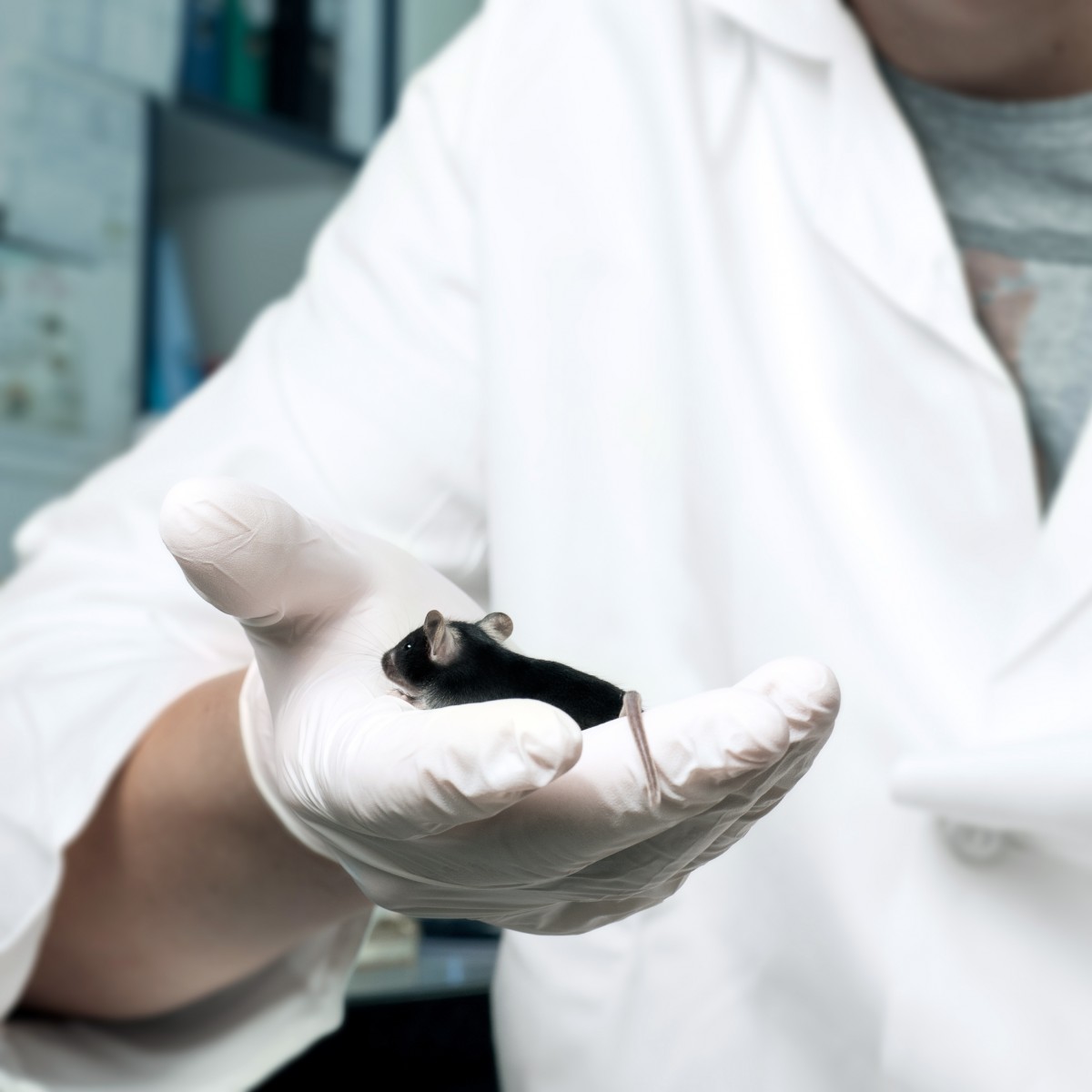Researchers Discover An Unexpected Link Between Mitochondrial Disease, a Hormone and High-Fat Diet

A new study led by researchers at the Salk Institute in California recently discovered an unexpected association between a longevity hormone, fat metabolism and mitochondrial disease in mice. The study was published in the journal Proceedings of the National Academy of Sciences (PNAS) and is entitled “High-fat diet and FGF21 cooperatively promote aerobic thermogenesis in mtDNA mutator mice.”
Mutations and DNA rearrangements in the mitochondrial genome are linked to mitochondrial diseases, disorders that can lead to impairment in cellular energy metabolism, potentially affecting organs and tissues like the brain, heart and muscles. Currently, there is no cure for mitochondrial diseases.
A nine-month old mouse with a mitochondrial disease can easily be mistaken for an older animal, as it usually exhibits thinning grey hair, hear loss, heart problems, osteoporosis, infertility and less weight.
In the study, researchers analyzed mice models of mitochondrial disease and premature aging and discovered that a hormone called fibroblast growth factor 21 (FGF21), which has been associated with a prolonged longevity and the body’s response to starvation, was highly active despite the fact that the animals exhibited typical features of accelerated aging.
“FGF21 is classically thought of as an anti-aging gene, turned on by exercise or fasting and suspected to extend lifespan,” said the study’s first author Christopher Wall in a news release. “Yet these mice ultimately age prematurely, despite having high levels of this hormone.”
Researchers found that FGF21 in fact helps dysfunctional mitochondria under stress conditions and reprograms the animal’s metabolic state by inducing a switch where important metabolic tissues start using fat instead of sugar as primary substrate, as fat appears to be an easier “fuel” for dysfunctional mitochondria.
“What we believe now is that turning on FGF21 is an adaptation to help this animal maintain its metabolic health,” explained the study’s senior author Dr. Ronald Evans. “If the mice didn’t have this hormonal ‘fountain of youth,’ they might age even more quickly than they already do.” The team suggests that mitochondrial disease can induce a metabolic state of starvation in mice, activating FGF21 that subsequently corrects this metabolic imbalance by increasing fat metabolism and improving the mitochondrial function.
However, fat is not an unlimited source in the animal’s body. “This works for a while in these mice, but eventually their bodies run out of fat to burn,” noted the study’s co-author Dr. Michael Downes. “FGF21 needs some additional fat from the diet to keep working.” Researchers then fed these mice with a high-fat diet and found that it enhances the effects of FGF21. Remarkably, these animals became completely resistant to diet-induced obesity and related health complications.
“These findings help us understand the link between diet, health and aging, and they give us the potential to dissect these connections in a molecular way that could lead to therapeutics,” added Dr. Evans, therapeutics not only for mitochondrial diseases but also for metabolic disorders in humans.
Patients with mitochondrial diseases have been previously reported to have high levels of FGF21. Based on this observation and their recent findings, the team suggests that increasing dietary fat intake could potentially mitigate the patient’s symptoms. In addition, the use of drugs to mildly stress mitochondria could also potentially induce a FGF21-dependent metabolic shift in patients with metabolic diseases including obesity.
“We want to look at the interaction between FGF21 and dietary fat in human patients with mitochondrial disease now,” concluded Dr. Downes, “and start to see how we can manipulate this dynamic in different ways.”






